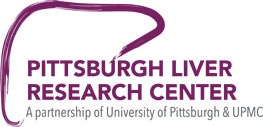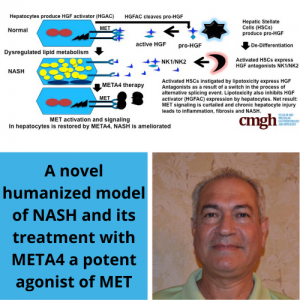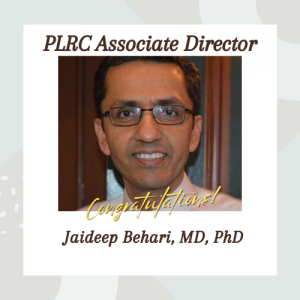


Pictured left to right: S. Monga, T. Pradhan-Sundd, A. Bell
An Jiang, Hirohisa Okabe, Branimir Popovic, Morgan E. Preziosi, Tirthadipa Pradhan-Sundd, Minakshi Poddar, Sucha Singh, Aaron Bell, Steven G. England, Shanmugam Nagarajan, Satdarshan P. Monga. Loss of Wnt secretion by macrophages promotes hepatobiliary injury followingadministration of DDC diet. Am J Pathol. 2019 Jan 2. pii: S0002-9440(18)30285-2. doi: 10.1016/j.ajpath.2018.11.010. [Epub ahead of print]
ABSTRACT
Exposure of mice to a diet containing 3,5-diethoxycarbonyl-1, 4-dihydrocollidine (DDC) induces porphyrin accumulation, cholestasis, immune response, and hepatobiliary damage mimicking hepatic porphyria and sclerosing cholangitis. Although β-catenin signaling promotes hepatocyte proliferation, and macrophages are a source of Wnts, the role of macrophage-derived Wnts in modulating hepatobiliary injury/repair remains unresolved. We investigated the effect of macrophage-specific deletion of Wntless (Wls), a cargo protein critical for cellular Wnt secretion, by feeding macrophage-Wls-KO (Mac-KO) and wild-type littermates (WT) a DDC diet for 14 days. DDC exposure induced Wnt11 up-regulation in macrophages. Mac-KO mice on DDC showed increased serum alkaline phosphatase, aspartate aminotransferase, direct bilirubin, and histological evidence of more cell death, inflammation, and ductular reaction. There was impaired hepatocyte proliferation evidenced by Ki-67 immunostaining, which was associated with decreased hepatocyte β-catenin activation and cyclin-D1 in Mac-KO. Mac-KO also showed increased CD45, F4/80, and neutrophil infiltration after DDC diet, along with increased expression of several pro-inflammatory cytokines and chemokines. Gene expression analyses of bone marrow-derived macrophages from Mac-KO mice and F4/80+ macrophages isolated from DDC-fed Mac-KO livers showed pro-inflammatory M1 polarization. In conclusion, this study shows that a lack of macrophage Wnt secretion leads to more DDC-induced hepatic injury due to impaired hepatocyte proliferation and increased M1 macrophages, which promotes immune-mediated cell injury.
For full text, please click here.








